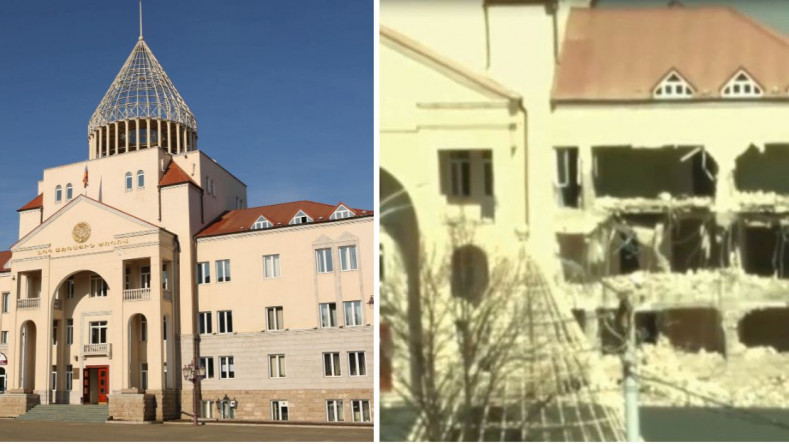Artsakh parliament slams acts of vandalism by Azerbaijan

The National Assembly of Artsakh (Nagorno-Karabakh) on Tuesday issued a statement strongly condemning the acts of vandalism by Azerbaijan’s regime.
“After the large-scale war and Artsakh’s complete occupation by Azerbaijan, numerous medieval spiritual centers, educational complexes and memorials, buildings and structures of historical and cultural significance in Artsakh are under threat,” the Artsakh parliament said.
“Despite its resounding statements on peace on various international platforms, Azerbaijan seeks to finalize its plans of genocide against the Armenian people. This is mainly manifested by the desecration and destruction of monuments that stand as symbols of Armenian Christian history and culture, liberation struggle and state building, as well as false statements about their Albanian origin.
“The latest acts of vandalism were the desecration of the Holy Mother of God Cathedral in Stepanakert, the complete destruction of the buildings of the Artsakh Republic National Assembly and the Union of Freedom Fighters,” the statement says.
The Artsakh parliament cites Article 4 of the 1954 Hague Convention for the Protection of Cultural Property in the Event of Armed Conflict which prohibits any form of theft, pillage or misappropriation of, and any acts of vandalism directed against, cultural property.
“Despite UNESCO has issued several calls to stop the destruction of Artsakh’s historical and cultural heritage and promised to send a mission to Artsakh, no mission has yet been deployed to Artsakh under the pretext of artificial obstacles created by Azerbaijan. The indifference of the international community has emboldened the aggressor to commit acts of vandalism.
“The National Assembly of the Artsakh Republic condemns the barbaric acts of the Azerbaijani authorities to erase the Armenian traces there and urges human rights organizations and Armenian authorities to submit all evidence of Azerbaijan’s cultural genocide policy to the competent international organizations and instances, giving the problem an international resonance,” reads the statement.

Comments are closed.